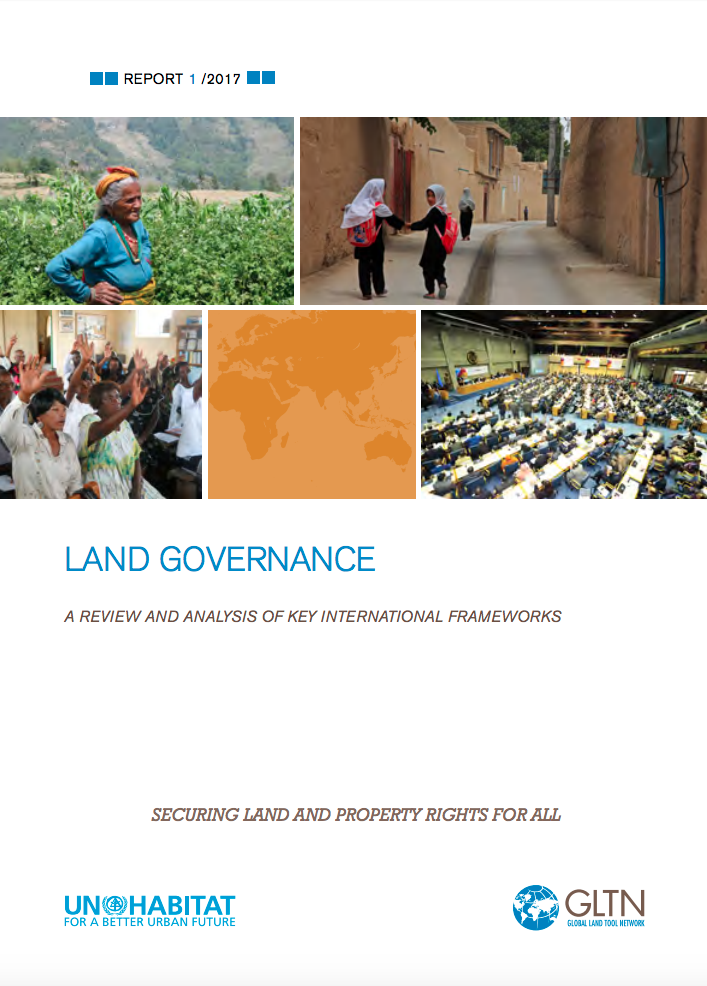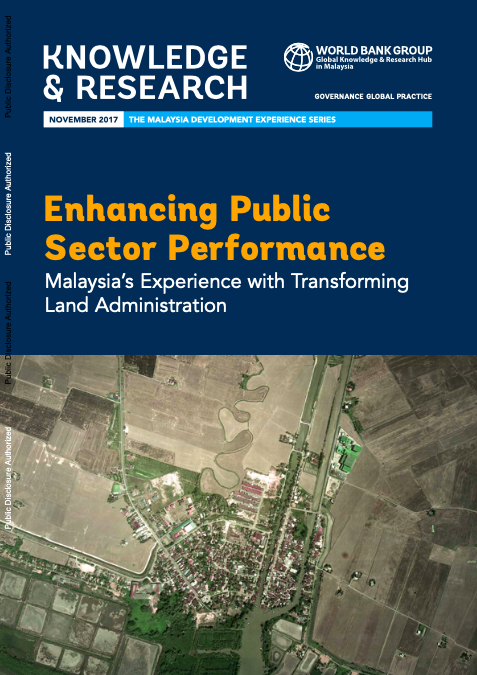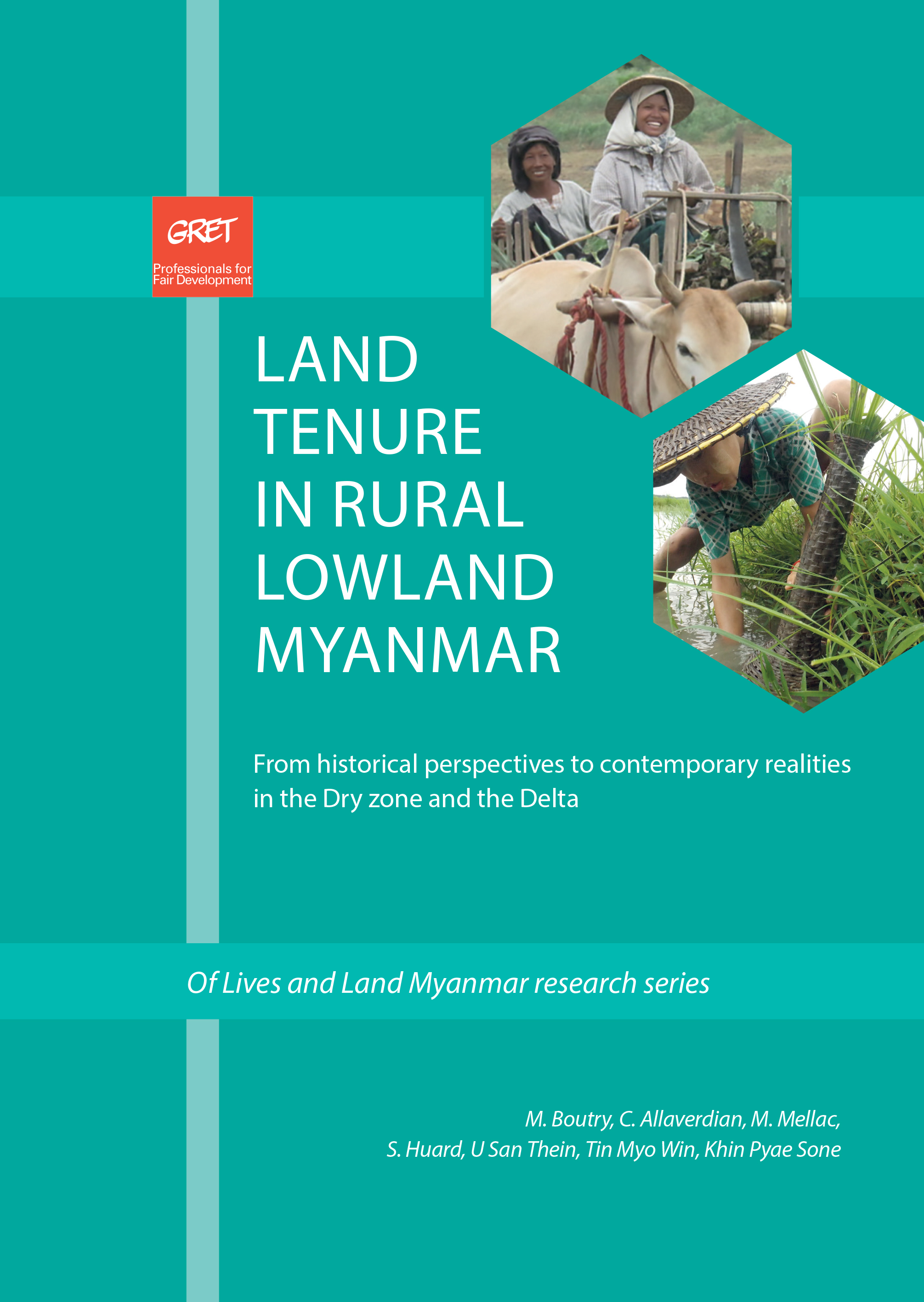IGAD dialogue ends with Africa being urged to use local solutions for its land challenges
Addressing and mainstreaming land governance in the African peer review mechanism
The African Peer Review Mechanism (APRM) is a mutually agreed instrument established in 2003 by the African Union in the framework of the implementation of the New Partnership for Africa’s Development (NEPAD). The objective of the APRM is to foster the adoption of policies, standards and practices that lead to political stability, high economic growth, sustainable development and accelerated regional and continental integration. The thematic intervention areas of the APRM are democracy and political governance; economic governance; cooperate governance, and; socioeconomic governance.
Land Governance: A Review and Analysis of Key International Frameworks
This publication features the key provisions on land (governance) in recent relevant international frameworks including the 2030 Agenda for Sustainable Development (SDGs), the New Urban Agenda (Habitat III), the Voluntary Guidelines on the Responsible Governance of Tenure of Land, Fisheries and Forests in the Context of National Food Security (VGGT), the Framework and Guidelines on Land Policy in Africa (F&G) and the Guiding Principles on Large- Scale Land-Based Investment in Africa (LSLBI Principles).
Dans quelle mesure les politiques foncières agricoles peuvent-elles être euro-compatibles ?
Enhancing Public Sector Performance
This report is part of the series focusing on documenting the lessons from Malaysia for other developing countries in improving their public-sector management. These lessons include those at the center of government, such as the delivery unit method applied to the implementation of the national priorities, or implementing the elements of performance-based budgeting, as well as deeper analysis of specific approaches in various sectors. Strategies for improving public sector performance will differ in education, health, public transport, or land administration.
Optimize opportunities presented by urbanization, ECA official tells African policymakers
Progress on land policy formulation and implementation in Africa
The present report contains a summary of progress made over the past two years in implementing key decisions on land governance of the African Union and United Nations, including those made under the auspices of the African Union Summit of Heads of State and Government through its endorsement of the implementation plan for Agenda 2063.
Resource Federalism - a roadmap for decentralised governance of Burma’s natural heritage
While Burma’s ethnic states are blessed with a wealth of natural resources and biodiversity, they
have been cursed by the unsustainable extraction and sale of those resources, which has fuelled
armed conflict. Instituting a system of devolved federal management of natural resources can
play a key role in resolving conflict and building a lasting peace in Burma.
Despite some ceasefires on paper, Burma remains in a state of conflict. Ongoing offensives in
Kachin and Shan states alone have left hundreds of thousands homeless. Fundamental calls for
Ecuador: recambios de la “Revolución Ciudadana” y continuidad conservadora
Quito, Ecuador
20 de octubre de 2017
Ecuador: recambios de la “Revolución Ciudadana” y continuidad conservadora
Stalin Herrera Revelo
Informe País [1]
Competing conceptions of customary land rights registration (rural land maps PFRs in Benin) : methodological, policy and polity issues
The formalisation of local or customary land rights is often seen as a means of tackling insecurity of land tenure and encouraging investment. Several tools, such as the Rural Land Plans (PFRs) used in Benin, seem to resolve the tension between the logic of registering rights in order to increase productivity and the logic of securing complex local rights and reducing conflict. But while PFRs are potentially a good tool for dealing with complexity, current policy debate in Benin tends to focus on them as a tool for privatisation.
Land tenure in rural lowland Myanmar
This study emerged out of an identified need to document social processes leading to land insecurity, and those leading to investment and sustainable use of lands by rural populations. Focusing on the Delta and Dry Zone, the main paddy producing regions of Myanmar, this analysis unravels the powers at play in shaping rural households’ relationship to land.








